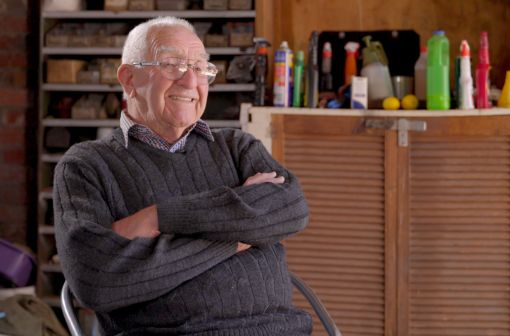“You want your provider and your individual carers to see you as a whole person with a wide range of interests as well as needs—someone who is dedicated to supporting your quality of life.”—Ramona Kleipas, Australian Unity’s Regional General Manager for Central-South NSW Home Care Services.
Key points
- Before deciding on a home care service, knowing what questions to ask potential at-home care providers is important.
- A provider should make it very clear how much will you have to pay.
- The most important thing when considering potential providers is to understand their attitude to your care.
When you start looking into home care services, you’ll find there are hundreds of government-approved providers—920 of them at last count. So where do you begin to find the right at-home provider for you? Here we take a look at ways of narrowing down the field and outline some important questions to help you feel confident when choosing your provider.

Where to start your search
If you have friends or family already receiving help at home, a good starting point is to ask about their experiences.
“Many people come to us by word of mouth,” says Trish Oxford, General Manager of Business Development & Community, Indigenous Services at Australian Unity.
If you can’t get a referral, hit the web. “If there’s no-one to turn to for advice, then the My Aged Care website is probably the best place to start,” says Trish.
My Aged Care is the government body responsible for all aged care services. The website includes a searchable database to help you find a provider who offers the services you need, as well as those that can cater for preferences such as location, language, faith and community.
Questions to ask potential at-home care providers
Once you’ve narrowed your search, it’s time to get down to the nitty-gritty and interview potential providers on their approach and services. Asking shortlisted providers the following questions allows you to compare apples with apples, so you can build a complete picture of the costs, care and level of service they’re likely to provide.
1. Do you offer government-subsidised or private services to support me while I wait for a home care package?
The Australian government provides funding for a set number of home care packages each year and, after you’ve been assessed, you’ll be placed on a national prioritisation queue. “It could be many months until a package becomes available, so you may need to find interim care,” says Ramona Kleipas, Australian Unity’s Regional General Manager for Central-South NSW Home Care Services.
2. How will you select my caregivers?
Providers should do their best to match you with carers who have similar interests to you, so ask about their process for identifying who will be a good match. Each visit should be a social experience – you should look forward to seeing your carer and having a chat. You should also be able to build a strong relationship with a small, regular team.
3. What happens if my caregiver can’t make a visit?
You’ll feel more comfortable knowing your provider has the resources in place to send a replacement if your carer can’t visit because they are sick, or are away from work for whatever reason. It’s worth checking what the provider’s back-up plan is in case of an absence.
4. Do you provide a full range of services?
If the types of services offered are limited, you may be forced to look for another provider if your needs change. Continuity of care makes these kinds of transitions much smoother and less stressful. “At Australian Unity, we have a wide range of home care, retirement communities and aged care facilities offering everything from entry-level care to complex and intensive nursing,” says Ramona. This will be important for people who may have a progressive illness or special needs that will need more attention over time.

5. What help will I get with meals?
Most providers can arrange for someone to do your grocery shopping and help you to prepare meals – but what about the times between visits? If help from family and friends is not an option, you might appreciate the opportunity to have ready-prepared food delivered. “We recently formed partnerships with Lite n’ Easy and Thr1ve so our customers can choose to have meals delivered,” says Ramona. “These can be stored in the fridge and heated easily in the microwave.”
6. Will I have access to the services of a dietitian?
It’s very easy to forego eating well especially if you’re living alone – it can be tempting just to reach for a plate of toast and a cup of tea instead of a nutritious meal. Eating well is important for optimum health, and a dietitian can help you to put together a well-balanced eating plan that suits your lifestyle and tastes, finding foods to tempt you if you don’t have a big appetite.
7. Can you help me access funding for extra services?
Additional government funding is available for some services that fall outside your home care package – for example, specialist dementia care or supplementary oxygen. A good provider will let you know about any extra supplements you may be entitled to and help you to apply.
8. What do you charge for your services?
Administration and case management fees vary considerably, as do hourly rates for individual services. A provider should make it very clear how much will you have to pay.
For example, Australian Unity doesn’t charge a basic daily fee or an exit fee if you change to another provider. “But some companies do,” says Ramona. “It’s important to check for these and any other out-of-pocket costs.” It goes without saying that knowing exactly how much you’ll be charged, and for what services, avoids nasty surprises later.

Approaching Aboriginal home care
One of the options you’ll see on the My Aged Care website is care for people who identify as Aboriginal or Torres Strait Islander. While the above questions should also be asked of Aboriginal home care services, Annette recommends looking very closely at the claims some organisations make about this type of care.
“Look for a provider with a good reputation in the area of culturally appropriate care,” explains Trish. “This is particularly important for people living with dementia as they should feel safe. and confident that the person coming into their home will help support their wellbeing.”
Collaboration can open the door to a wider range of services. “We’re in touch with other service providers for Aboriginal people,” says Trish. “We help our customers access free or very low-cost services such as allied health, psychology services and chronic disease management. Many aren’t aware that these are available so we can help them to make their funded package go further.”
A holistic approach to care
Beyond all of the practicalities, the most important thing when considering potential providers is to understand their attitude to your care.
“You want your provider and your individual carers to see you as a whole person with a wide range of interests as well as needs – they should be dedicated to supporting your quality of life,” says Ramona. “This is the key to you and your family enjoying peace of mind.”
The right support can make a huge difference to your independence, wellbeing and quality of life. If you’re starting to think about staying at home as you age, see our articles for more information on the types of assistance available and the process for applying for help at home.
Disclaimer: Information provided in this article is of a general nature. Australian Unity accepts no responsibility for the accuracy of any of the opinions, advice, representations or information contained in this publication. Readers should rely on their own advice and enquiries in making decisions affecting their own health, wellbeing or interest.


